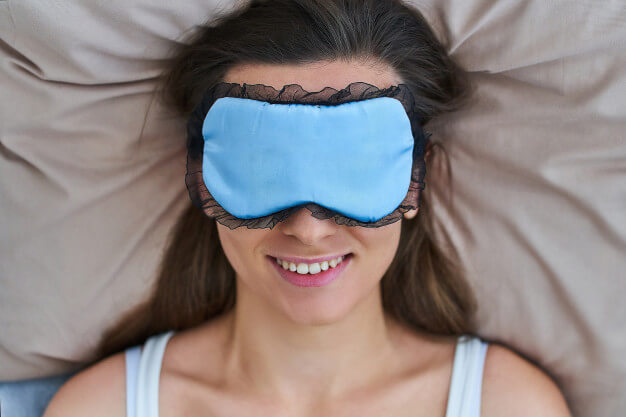Making your bedroom relaxing and comfortable can help you fall asleep easily and quickly. Even though it seems obvious, many people overlook it. That is why it is difficult for them to fall asleep and to sleep throughout the night.
How do you design your bedroom? Minimize distractions and maximize comfort. Here are some tips to help you optimize your bedroom to help with sleep:
-
Use High-Performance Pillow and Mattress –
It is vital to have a high-quality mattress to ensure you are comfortable throughout the night. It helps you relax. A quality pillow provides proper support to your spine to help you avoid pains and aches.
-
Use Quality Bedding –
Use blankets and sheets to make your bed more comfortable. So, make sure you are using beddings that are comfortable when you touch them. The beddings ensure the temperature is very comfortable throughout the night.
-
Avoid Light Interference –
Exposure to excess light may throw you off your circadian rhythm and sleep. Use a sleep mask or blackout curtains to block light. Blocking light ensures light does not interfere with your sleep.
-
Cultivating Peace and Quiet –
Keep noise to a minimum to optimize your bedroom for better sleep. If it is impossible to eliminate the sources of noise, use a white noise machine or a fan to drown them out. Use headphones and earplugs to prevent abrasive sounds from interrupting your sleep.
-
Find a Comfortable Temperature –
The temperature of your bedroom can distract you since it can make you feel too cold or too hot. You will choose the temperature that suits you. This is because the temperature varies from person to person. However, most research suggests 65 degrees is the ideal temperature for sleeping.
-
Use Pleasant Scents –
A light scent can calm you and helps you fall asleep quickly. Use essential oils like lavender, to provide pleasant scents for your bedroom. Ensure they have natural aromas.
How to Optimize Your Sleep Schedule
Take control of your sleep schedule to help you get a good night’s rest. Use the following four strategies to optimize your sleep schedule for better sleep:
-
Have a Fixed Time for Waking Up –
Do not wake up at different times. Why? It makes it difficult for your body to get used to a healthy sleep schedule. You need to set a wake-up time and wake up at that time every day. It does not matter if it is on a weekend or holiday. Having a fixed time for waking up can help you avoid the temptation of sleeping in.
-
Budget Your Sleep Time –
If you want to get the right amount of sleep every night, you might want to add your sleep time to your schedule. Once you set your wake-up time, you can work backward to select the time you will go to bed. If possible, ensure you have enough time to wind down and relax before you go to bed.
-
Be Cautious With Naps –
Be cautious with naps if you want to get a good night’s rest. Do not nap too late in your day or for too long during the day. It may throw you off your sleep routine, making it difficult to fall asleep when it is time for you to sleep. You can take your naps shortly after your lunch and ensure your nap is around 20 minutes.
-
Change Your Sleep Routine Gradually –
Once you decide to change your sleep routine, you need to make the changes gradually. The maximum difference should be 1 to 2 hours every night. Change your sleep routine gradually to make it easy to follow your new sleep schedule.














